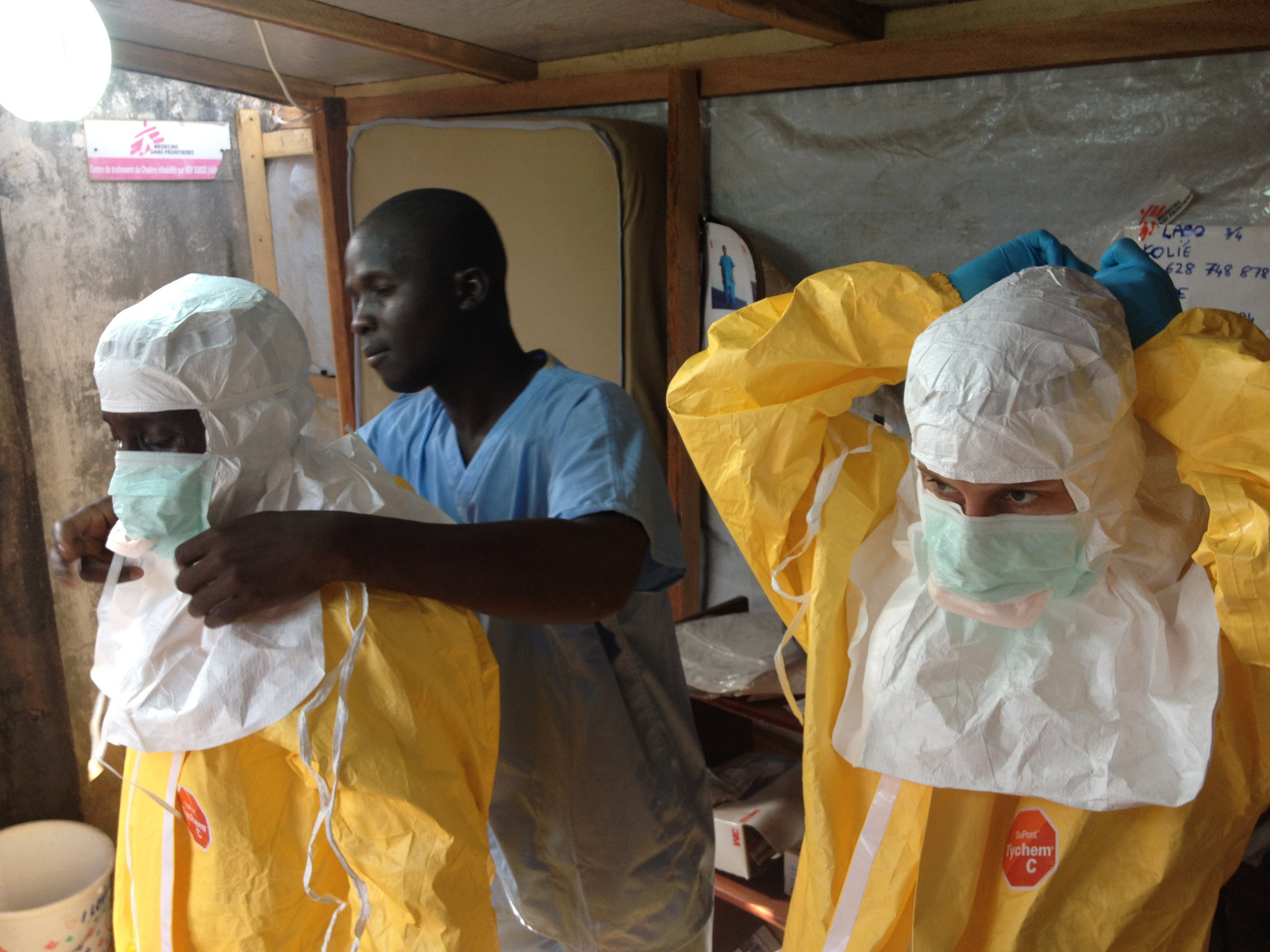The New York Times headline was admirably succinct: “WHO Cuts Hamper Ebola Fight.” The United Nations’ World Health Organization is the world’s main health agency. It should be flooding west Africa with an army of experts and health workers to combat the virus sweeping through the region. But it can’t.
WHO was among the collateral damage of the 2008 global financial crisis triggered by America’s greedy bankers and other hustlers. The organization lost a full billion dollars, 20 per cent of its modest budget. Its capacity to respond to crises was seriously undermined. Its emergency response units were slashed and many positions eliminated — “precisely the kind of people,” the Times points out, “that might have helped blunt the outbreak before it ballooned into the worst Ebola epidemic ever recorded.”
This week WHO said it needs $1 billion for its Ebola work. That’s nothing more than punk change if the world cared. Canada, for example, found it could afford an average of $1 billion-plus each year of the 12-year war against the Taliban. Yet unconscionably, it’s taken until this week for the world to begin anything like a serious response to the epidemic. But in the words of Dr. Joanne Liu, international president of Medecíns Sans Frontiérès — and where would we be without MSF? — these latest contributions are “absolutely not enough.”
As if proving her point, the Harper government just announced Canada’s latest contribution to this massive emergency: $2.5 million in personal protective equipment for medical staff working in the affected areas. Maybe this was a typo. Or maybe it just doesn’t fit with the Conservatives’ pre-election strategy.
WHO somehow expected that the health systems of affected countries could help cope with this plague before it spins completely out of control. But this is hopelessly unrealistic. There are systemic and structural problems in the affected countries that make it impossible. The fact is none of them have anything worth calling a health system at all. In fact, despite the real progress parts of Africa have been making, most Africans across the continent still suffer from dysfunctional health care systems. There are several reasons.
First, there’s the silent, insidious brain drain. A 2011 study published in the British Medical Journal looked at the impact of doctors recruited by Canada, Britain, Australia and the United States from nine African countries. The figures are mind-boggling. These four rich countries saved more than $4.5-billion in schooling costs, while losing these doctors could cost the African countries as much as $13.5-billion.
It’s one of the oldest stories in the world: the rich world gets richer at the direct expense of the poor. Africa sends foreign aid to the west. The brain drain is only one example of many.
Second, few African governments spend as much as they should on their health services, some because they are terrible governments, others because they can’t afford to. Let’s concentrate on the latter. According to the World Bank, in 2012 total health expenditures per person (public and private) for Canada were $5,741. For those countries battling Ebola, they were: Guinea $32, Liberia $65, Sierra Leone $96, Nigeria $94. So Canada and Canadians spend $61 on health care for every $1 spent in oil-rich Nigeria, and $88 for every $1 spent in Sierra Leone. Try imagining the state of care in Canada if we spent 61 times, or 88 times, less than we now do.
And yet, as two new reports remind us, there’s lots of money in Africa. It’s just not available for the common good. The NGO known as ONE, dedicated to fighting poverty and disease, tells us where new funding for poor countries can come from. Their latest study, The Trillion Dollar Scandal, documents how poor countries’ efforts to fight poverty, disease and hunger are being damaged by “a web of corrupt activity” that siphons hundreds of billions of dollars from their economies every year. This illicit activity could be stopped if only the west had the political will. If rich country governments cracked down on “corrupt business practices, money laundering and tax evasion” through anonymous shell companies and “shady deals” for natural resources, it would save the poorest countries a mind-blowing trillion dollars a year at least, and save 3.6 million lives a year.
In sub-Saharan Africa, according to the ONE report, the money recovered would pay for the education of 10 million children a year; cover the cost of 500,000 primary school teachers; provide antiretroviral drugs for more than 11 million people with HIV and Aids, and buy almost 165 million vaccines. Obviously the fight against Ebola would benefit greatly.
Look at it this way. A coalition of 13 international and African NGOs have produced their own report called Honest Accounts? The true story of Africa’s billion dollar losses. It shows that while aid to Africa from the rich countries “amounts to less than $30-billion a year, the continent is losing $192-billion annually in other resources flows, mainly to the same countries providing that aid.” That means us. These other resource flows include “profits made by foreign companies, tax dodging and the costs of adapting to climate change.”
What a world. First we rip Africa off. Then we tiptoe — oh, so ploddingly — to its rescue. Something is very wrong.
This article originally appeared in The Globe and Mail.
Image: Flickr/European Commission DG ECHO



